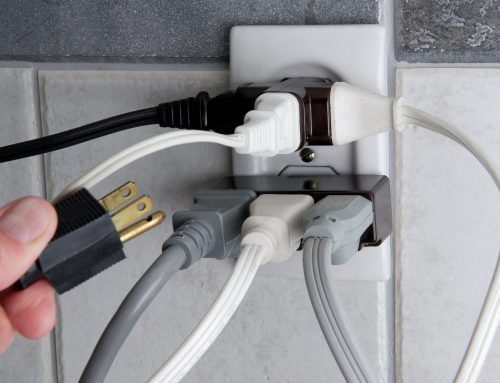Compliance with fire codes is not only a legal requirement but also essential for mitigating the risk of fire-related incidents. However, despite the existence of regulations, common violations may occur, posing significant hazards to building occupants and property. In this article, we explore the top 10 most common fire code violations in commercial buildings and provide practical insights on how to prevent these violations to uphold safety standards effectively.
#1. Inadequate Exit Access
One of the primary fire code violations involves inadequate exit access, including blocked or obstructed pathways leading to emergency exits. To prevent this violation, ensure that exit routes are clear of obstructions at all times, maintain sufficient signage indicating exit locations, and conduct regular inspections to identify and address any potential obstacles.
#2. Lack of Emergency Lighting
Failure to provide adequate emergency lighting is another common violation, compromising occupant safety during fire emergencies. To address this issue, install emergency lighting systems that activate in the event of a power outage, ensuring visibility along exit routes and within critical areas such as stairwells and corridors.
#3. Non-Compliant Fire Alarm Systems
Fire alarm systems that are outdated or improperly maintained often result in code violations. To ensure compliance, conduct regular inspections, testing, and maintenance of fire alarm systems according to regulatory requirements. Address any deficiencies promptly and keep detailed records of all inspections and servicing activities.
#4. Improper Fire Extinguisher Maintenance
Inadequate maintenance of fire extinguishers, such as expired or damaged units, is a frequent violation of fire codes. Implement a comprehensive fire extinguisher maintenance program that includes regular inspections, testing, and servicing by qualified personnel. Additionally, provide appropriate training to building occupants on the proper use of fire extinguishers.
#5. Blocked Sprinkler Systems
Blocked or obstructed sprinkler systems can significantly diminish their effectiveness in suppressing fires, leading to code violations and increased fire risks. Maintain clear access to sprinkler heads and ensure that storage areas and ceiling spaces are free of clutter and obstructions that may impede water distribution.
#6. Insufficient Fire Separation
Failure to maintain adequate fire separation between different occupancy areas or compartments is a common violation that compromises the integrity of fire barriers. Regularly inspect fire-rated walls, doors, and penetrations to ensure compliance with building codes, and address any breaches promptly to prevent the spread of fire and smoke.
#7. Missing or Inadequate Fire-Resistant Materials
Commercial buildings must incorporate fire-resistant materials in construction to mitigate the spread of fire and limit property damage. Conduct regular inspections to identify areas where fire-rated materials are missing or inadequate, and take corrective action to enhance fire protection measures as necessary.
#8. Improper Storage of Combustible Materials
Improper storage of combustible materials, such as flammable liquids or hazardous chemicals, poses a significant fire hazard and violates fire codes. Establish strict protocols for the storage and handling of combustible materials, including designated storage areas with appropriate ventilation and fire suppression measures.
#9. Defective Electrical Systems
Defective or overloaded electrical systems are a common cause of commercial building fires and frequently result in fire code violations. Implement regular inspections and maintenance of electrical equipment and wiring to identify potential hazards, and address any deficiencies promptly to prevent electrical fires.
#10. Inadequate Fire Safety Training
Inadequate fire safety training for building occupants and staff members is a prevalent violation that compromises the effectiveness of emergency response efforts. Develop and implement comprehensive fire safety training programs that cover evacuation procedures, fire prevention measures, and the proper use of fire protection equipment.
Local Fire Codes
In Georgia, fire safety regulations are governed by the State Fire Marshal’s Office, which enforces the Georgia Fire Safety Act and adopts the State Minimum Fire Safety Standards. These standards encompass various aspects of fire prevention, detection, and suppression to ensure the safety of occupants and property in commercial buildings. To find out specific fire codes applicable to your building in Georgia, consult the State Fire Marshal’s Office website or contact your local fire department. Additionally, building owners and facility managers can seek guidance from fire protection professionals or consultants well-versed in Georgia’s fire safety regulations to ensure compliance with state requirements and mitigate fire risks effectively.
Fire Systems, Inc.
Ensuring compliance with fire codes is essential for maintaining a safe and secure environment in commercial buildings. By addressing common violations and implementing proactive measures to prevent fire hazards, property owners and facility managers can uphold safety standards effectively and protect occupants and property from the devastating effects of fires.
Regular inspections, proper maintenance, and comprehensive training are key components of a robust fire safety program that mitigates risks and promotes a culture of safety within commercial buildings. By prioritizing fire safety and adhering to regulatory requirements, stakeholders can create a resilient built environment that safeguards lives and property against the threat of fire. Let Fire Systems, Inc. be your trusted fire protection partner. Fire Systems is an all-services fire protection company located in Atlanta, Georgia, with over three decades of experience. The team of highly trained professionals at Fire Systems are dedicated to ensuring building and fire code compliance for all customers. Contact Fire Systems, Inc. today at 770-333-7979 or visit our website for additional information on all services and offerings.






